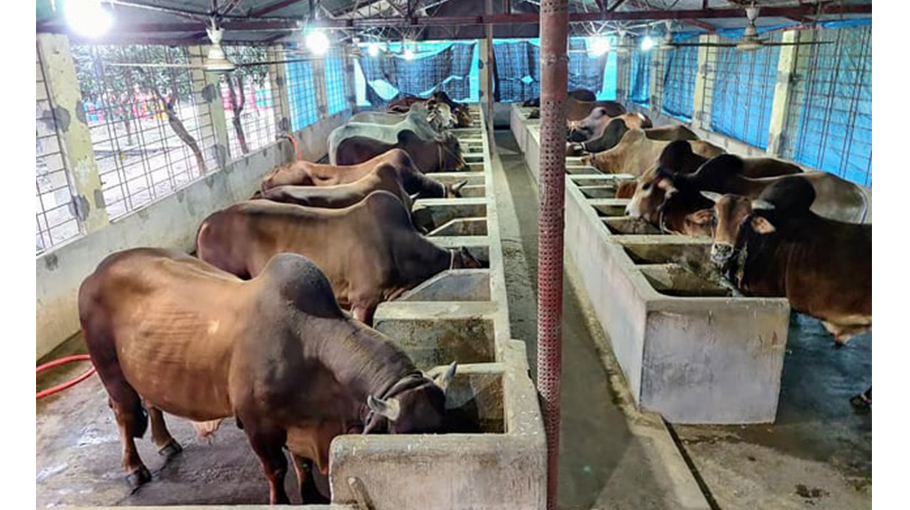Climate change poses threat to livestock

Adverse impacts of climate change along with the present prolonged heat wave has been posing threats to the production of livestock, particularly beef cattle.
Professor Dr SM Kamruzzaman depicted that climatic stress is a major limiting factor of production efficiency in beef cattle and in dairy cattle in tropical environments.
Referring to his research findings, he opined that the stress is apprehended to increase due to climate change. More than half of the cattle in the region are maintained in hot and humid environments.
Amid the heat stress, the physiological and cellular aspects of reproductive function are disrupted by the increase in body temperature.
Prof Kamruzzaman, who teaches at the Department of Veterinary and Animal Science in Rajshahi University, said substantial differences in thermal tolerance exist among breeds and among animals within breeds.
Elaborating on the indicative of opportunities for selective improvement, he attributed that use of genomic tools to produce an animal with superior ability for both thermal adaptation and food production.
It represents an energy-efficient sustainable approach to meet the challenge of global climate change.
There is an urgent need of concentrating on the domestic hybrid livestock technology for enriching the breeding capacity through providing high technology and institutional feedback.
On the contrary, he exposed that the imported livestock species from Australia or Denmark are much more susceptible to the climate hazards compared to the locals but it's not cost effective in the country's aspects.
Talking to BSS here on Thursday, Prof Dr Kamruzzaman opined that the reduction in productivity and reproductive capacity of cattle is supposed to be accelerated protein deficiency.
In a high-temperature environment, the pregnancy rate decreases, leading to decrease in animals and the production as well.
It's also important to improve the breeding efficiency of cattle through the use of reproductive technology to mitigate the odd situation.
Selective breeding is an additional mitigating strategy which is cost- effective, permanent and cumulative and can easily be included in daily herd management at a limited expense.
Giving an elaboration to the issue he said animal reproductive experts can play a pioneering role towards mitigating global warming related to the livestock industry.
Utmost emphasis should be given on innovations in the field of making selective breeding as mitigation strategies and there are more need-based works to be done.
Extensive and automated registration, breeding value assessment models, Knowledge of the impact of selecting cows and implementation in practical and widely accepted tools need to be promoted in the grassroots.
Appreciating the national livestock breeders but still it requires some options to improve a rich gene bank that can preserve the livestock's gene up to a certain period for the climate resilient livestock development.
As a whole, Prof Dr Kamruzzaman categorically mentioned that Bangladesh is not responsible for climate change but its people are in a miserable position, which is not suitable for livestock feeds, fodders, forages and grazing fields.



